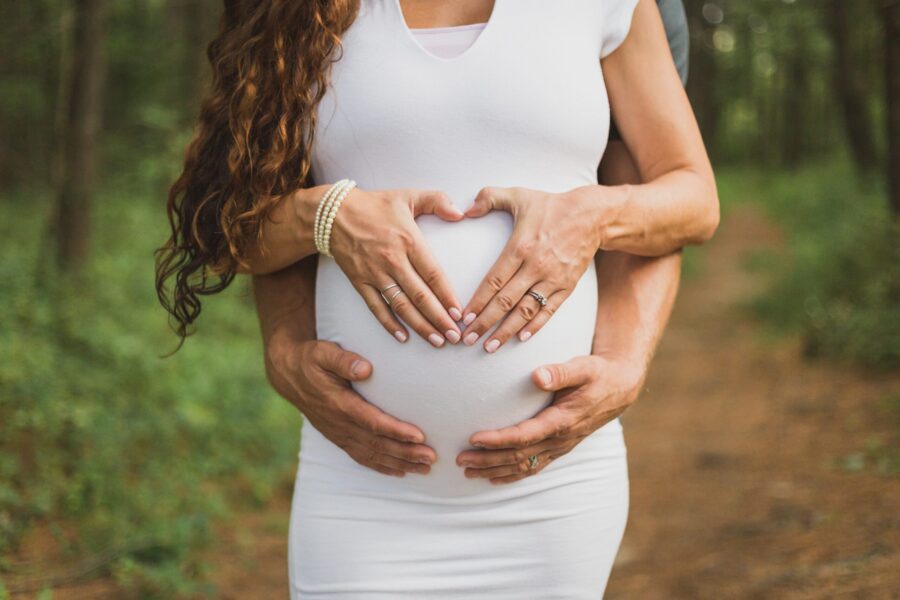Rumors, popular opinion and misunderstandings have at times been propagated and used against targeted individuals. Some of the misunderstandings are about fertility. Some people believe a woman’s value is directly related to her fertility. A large percentage of people have desired to have and have had at least one biological child. The desire and ability to procreate goes back to the beginning of time.
“So, God created man in his own image, in the image of God created he him; male and female created he them. And God blessed them, and God said unto them, Be fruitful, and multiply, and replenish the earth, and subdue it: and have dominion over the fish of the sea, and over the fowl of the air, and over every living thing that moveth upon the earth.” Genesis 1: 27-28.
However, some people do not desire children. Sadly, others are not able to have biological children, even though they desire to do so. In this post, I am going to address three myths surrounding the sensitive topic of fertility.
Myth 1. Men are very capable of producing a healthy child, even in older age as long as the woman is young and fertile.
Facts: According to studies, after age 40, the quality of sperm appears to deteriorate in men [1].
• Men continue to produce millions of sperm, but as they age, the likelihood of producing a child with birth defects increases.
• Reportedly, the likelihood of a man being able to produce a child at all decreases after 40. This is because both quality of sperm as well as quantity deteriorates with age. In addition, deteriorated sperm can increase pregnancy complications in a woman [1].
Despite the fact that most focus is typically placed on the woman being responsible for birth defects and pregnancy complications after age 40, the man can be a contributor to these issues as well.
Myth 2: Women lose value after age 30, lose value in general, along with loss of their fertility.
Facts: Men and women are fearfully and wonderfully made by God. They don’t lose value as humans, due to aging or due to any other processes.
• That a woman (or man) loses value at any age is not true. The myth that women lose value has been used to hound women to marry and give birth when they are not ready yet, or when they simply don’t desire marriage and children.
• People who pressure women like this often gloss over the fact that many women are cheated on and abandoned while pregnant or after giving birth. For this reason, women are becoming more skeptical and more careful about the idea of marriage. Some women are a full-time parent while their child’s or children’s father is not involved enough. Some women have learned to take these things into consideration and should not be harassed about when or if they will have children.
• Some people don’t seem to be fully aware of or acknowledge the potential risks surrounding pregnancy and childbirth. Some women have health conditions that would make it difficult or impossible for them to have children. Outsiders should not judge people who don’t want to have children or cannot have them.
People who pester women about having children don’t seem to take these things into consideration. Sometimes, women who suffer from infertility or other health problems preventing pregnancy end up feeling devalued because some people attach a woman’s value largely to motherhood.
• People who try to rush others into marriage also don’t seem to be considering the fact that the pickings are slim to begin with when it comes to finding a suitable partner. It is harder than it should be to find a quality partner.
• In addition, many marriages end in divorce. Children suffer most. It is better to marry right than to marry right now to the wrong person.
• Marriage should not happen unless two right people, at the right time are getting married for love and will be committed to each other and their family in a healthy marriage. No marriage is perfect, but the marriage should be healthy. Unfortunately, many children are not able to witness the example of what a healthy marriage is by observing their parents.
The erroneous ideology that a woman is losing value as she ages has been used as a weapon to control women into settling for unhealthy men, unhealthy relationships and unhealthy marriages. Some women have panicked under pressure and settled when trying to meet social demands. Then, some blame women for choosing the wrong spouse.
Unhealthy marriages typically produce more broken homes and contribute to more brokenness in an already broken, dysfunctional society.
Both men and women are guilty of pressuring women this way. Some men are pressured in various ways too. However, men are not usually shamed for being single, but are seen as bachelors when single. Single women have often been treated very differently- pressured and put into shame and depression about being single.
No one should be treated this way. Certainly, for those who desire children, it is wise to plan for having them during their younger years, if possible. This means marrying earlier when/if people can find the right person to marry. Since the woman actually carries the child and gives birth, it makes sense that she may desire to get pregnant at an age a few years younger than what might seem ideal for her husband.
For example, a husband and wife may both be 33 years old. He may want to wait a couple more years to have children. She may think it is better to start right away, since she will be the one pregnant and giving birth, and they both want a couple of children. This way, by age 40, they could be all set having two or three children.
One’s ability or lack thereof to produce biological children has no bearing on their worth/value as a human being.
Myth 3. If a woman can’t get pregnant, she is most likely the one who is infertile.
Facts: Unfortunately, it could be the man or woman who is contributing to their inability to conceive. It is not necessarily the woman who is the infertile one, though she could be. For example, abnormal sperm morphology can lead to a fertility issue in some men [2].
There are other issues that could cause a man or woman to have problems procreating.
Next time a gentleman brags about being able to be the ripe age of 70 and marrying a 20- or 30-year-old woman because age doesn’t matter for a man when it comes to producing children, now we know the truth. His age does matter.
How many 20- or 30-year-old women want to have children with a husband who will most likely die soon and leave her as a single parent? It may be quite the fantasy of some to marry and have a family with such a young woman, but it is not realistic for most.
When a couple cannot conceive, it should not be assumed either of them are responsible. Rather, the issue could be accurately investigated, pin-pointed, and dealt with in compassion. It could be one of them or both of them.
Although some hold it over the heads of women that men have more time to have children, the difference in the amount of time a man has is not as drastic as one may think. In addition, just because a man is physically capable of having children, it does not mean he should. Same goes for a woman.
Finally, instead of weaponizing age and circumstances surrounding fertility or any other situations, it is important to remember the value of a human, despite any of their circumstances. It is also very important to be compassionate concerning the sensitive topic of fertility. By the grace of God, my goal is to treat others in all matters as I would want to be treated- with love and respect. So how does a woman’s value change after age 30? It doesn’t. For sure, it doesn’t change for the worse.
[1] Men’s age affects both quality and quantity of sperm and can increase pregnancy complications.
[2] Mayo Clinic on sperm morphology:




11 Comments
Leave your reply.